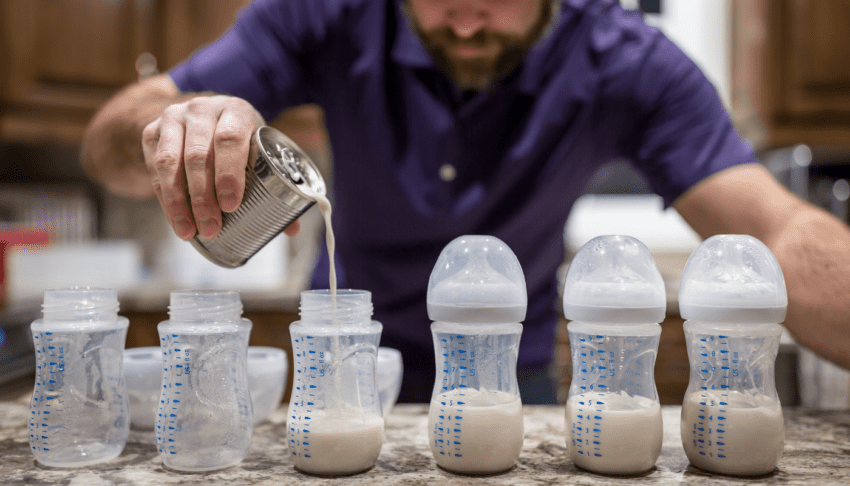Breast milk is the primary source of all crucial nutrients for a baby for at least the first few months of life. But, unfortunately, breastfeeding is not always an option, which can be very upsetting for mothers. In this situation, baby formula is often the best solution. However, the process of choosing the right formula consists of a lot more than just going to the store and picking something that looks okay–that’s the baby’s health we’re talking about, so this matter has to be approached more seriously. In this guide, we’ll look at the major differences between organic baby formula and non-organic to see which is the best pick for your kid.
What are the key differences between organic baby formula and non-organic?
Organic infant milk contains various nutrients that contribute to the support of the baby’s overall health, such as DHA and ARA fatty acids, omega-3, probiotics, prebiotics, and others. Let’s review other benefits of organic baby formula and see how different organic products can be from the regular ones:
- Ingredients. Despite the fact that all baby formula is supposedly made in safe conditions and won’t harm the baby’s health, the reality is a bit different. Every time you go shopping for baby formula, you have to check the ingredients, and if you pick a regular formula, you might see such components as gluten, soy, palm oil, phytin, sugar, and gliadin. Many of these ingredients are dangerous to your baby’s health, and they are banned in European baby formula.
- Farming standards. Every single ingredient used in organic baby formula is treated properly–no hormones are given to the cows whose milk goes into any organic products, and no chemicals are used to grow crops that are then harvested to make organic baby formula.
- Strict guidelines for the production of baby formula. There are certain regulations that every manufacturer must follow. For example, all used ingredients must be certified organic. Otherwise, it will be impossible for a manufacturer to keep selling their products.
- Baby’s health. You might not see it right away, but the real effects on the health of your child can be very damaging if you keep using the poorly selected baby formula. If you opt for an organic version, you will decrease the level of exposure to various toxins, hormonal disruptions, and other harmful chemicals. Moreover, the baby’s internal organs will suffer much less if you use organic baby formula.
So what should you choose?
Of course, the final decision is up to you and only you. No one should tell you what’s right or wrong–you’re the one who knows best. Non-organic products are much more affordable and accessible, while organic formula is a much healthier alternative, even though it’s a bit costly. Consider your needs and your baby’s health when making such an important decision. And remember to consult a pediatrician–such topics should be discussed with your doctor.


